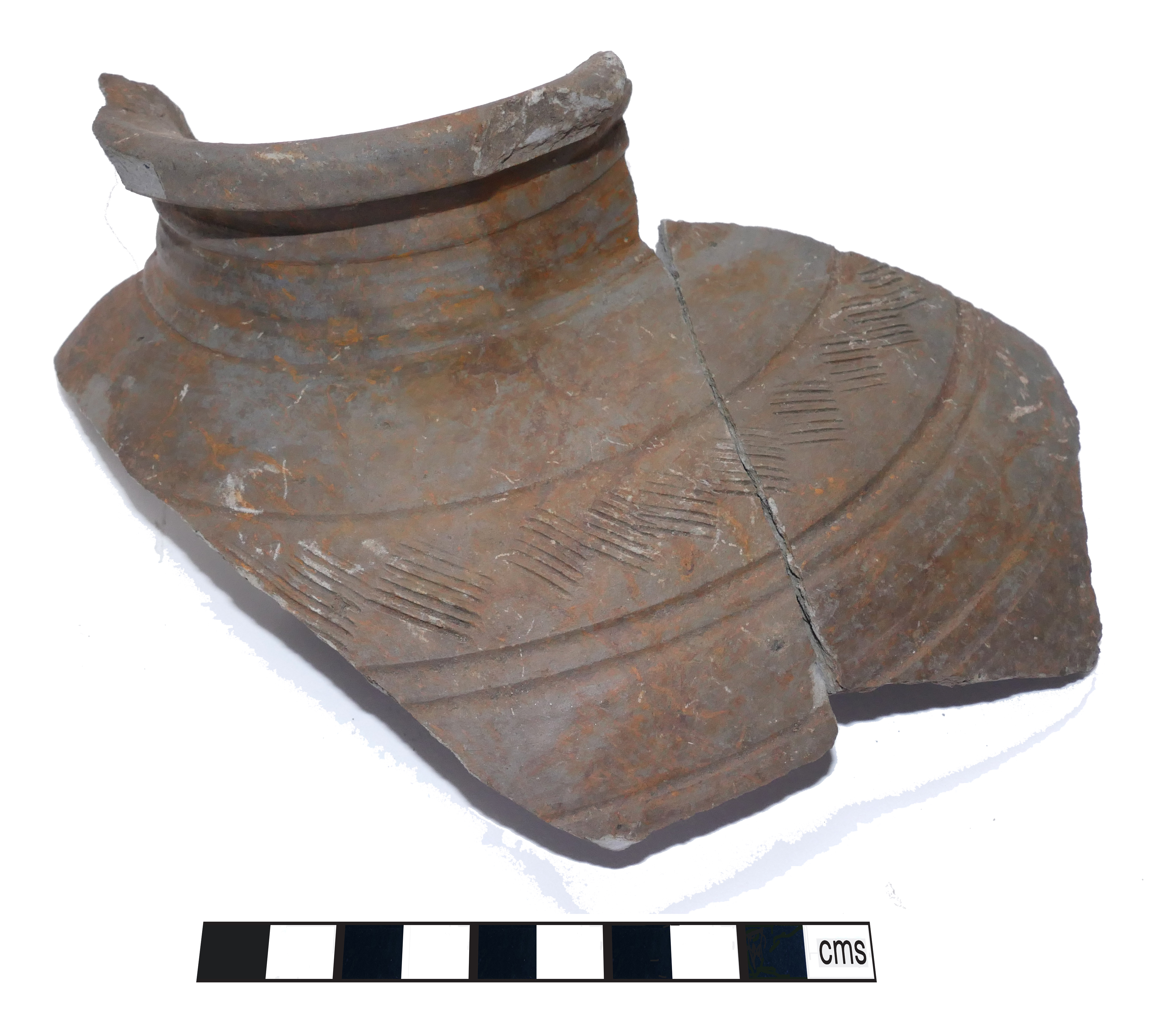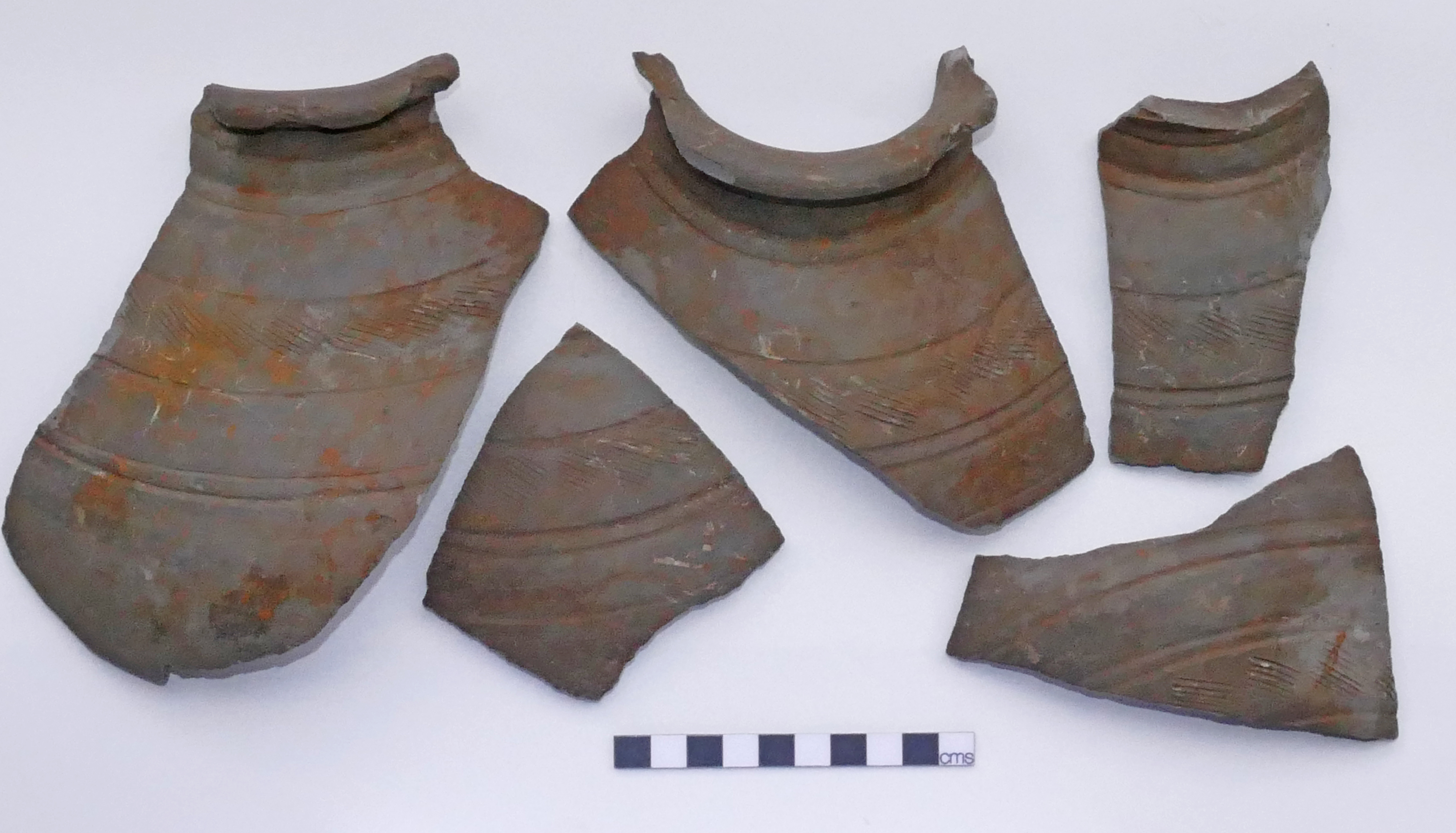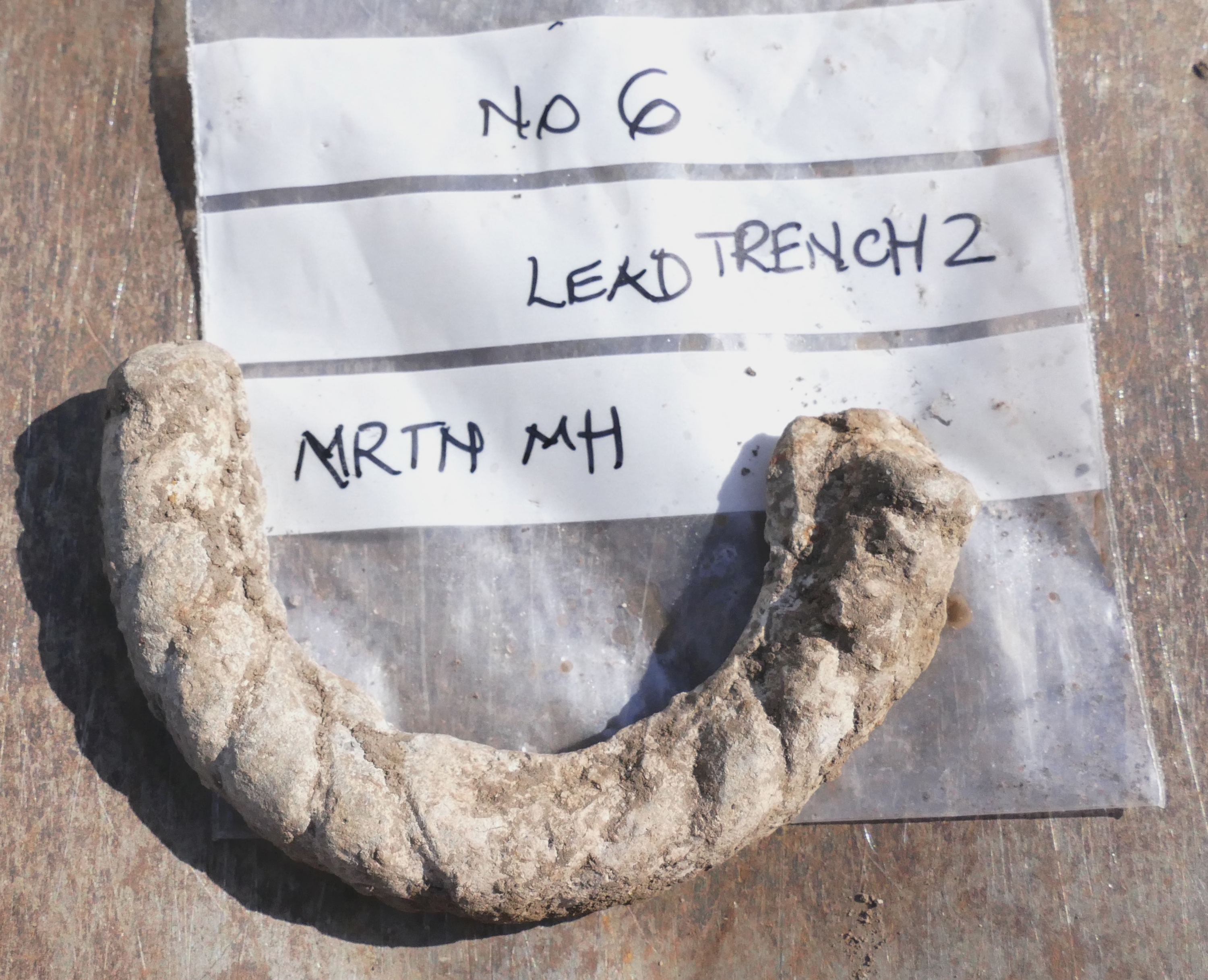Story
CLASP has carried out a number of excavations around the Roman Posting Station and small town of Bannaventa in Northamptonshire. This was an important settlement with its hinterland in the vicinity of one of the main transport routes, Watling Street, in Roman Britain.
In 2022 a trial trench was dug across the original Watling Street alignment where the Roman road approached the town of Bannaventa. This is part of an ongoing wider project to explore the character, extent and layout of this settlement. The trial trench was over 20m long and about 1.5m in width. It lies just above a brook flood plain and where there is a significant rise in the land leading to the Posting Station.
The excavated remains implied an 8m wide thoroughfare composed of compacted irregular limestone fragments together with some larger displaced potential surface or curb stones. There appeared to be no sign of any associated drainage ditches with the foundations resting on a clay base.
The rise from the brook floodplain to the promontory on which the Posting Station stands is quite steep and could have been quite awkward for Roman wagons and carts to make their way up the slope. A bridge may have been needed to allow wheeled vehicles to approach the Posting Station, yet the excavated remains suggest some sort of metalled ford across the brook floodplain.
An extensive stone scatter lying northwest of the excavated carriageway will be investigated this year, 2023, and hopefully will provide the answer.
In terms of artefacts the pottery found on either side of the carriageway tended to produce elements of vessels rather than individual sherds, implying the disposal of whole vessels or significant portions of vessels rather than the general household waste found elsewhere in the site.


A moulded lead object was also recovered, its meaning and function are difficult to interpret but the ornamentation of the piece is highly detailed which indicates it was meant to be seen if not admired. It might have been attached to a cart or box although there are no attachment holes to secure it.

One corroded and concreted coin was found.
A Roman Posting station was a centre for the local administration but also a way station for travellers on official business, although other travellers could make use of it they would have had to pay.
A late Roman timber structure has previously been identified. Geophysical surveys indicate a number of potential structures and in addition to further work on the carriageway this year CLASP aims to undertake additional work on at least one of the other structures.
CLASP has visited over a number of years for field walking, metal detecting and excavation and the site has been very productive. Many thousands of sherds of pottery have been found covering the Roman period between mid 1st century and the early 5th century, including some pieces with a European provenance. Several hundred coins have been found dating to the 3rd and 4th centuries along with around 20 brooches and 40 pieces of quern used for grinding corn.
We are also working on a cartographic representation of the area showing all the features observed during extensive geophysical surveys. This is a massive undertaking which will enable us to better understand the data acquired from field walking, metal detecting and excavation by placing those findings into a spatial context.
Further information about the research carried out by CLASP and about previous excavations can be found by going to https://claspweb.org.uk/
 Campaign by
Campaign by 